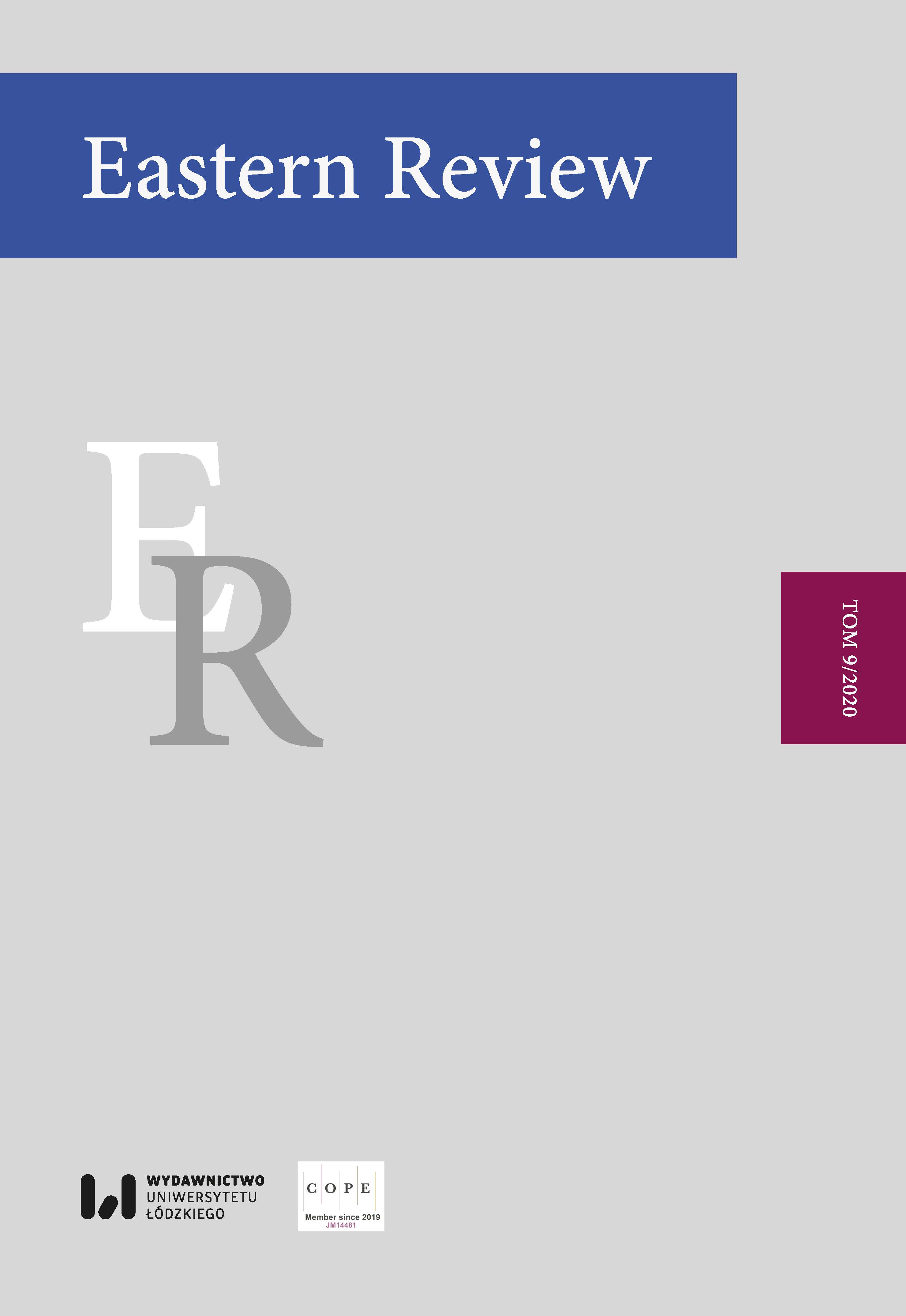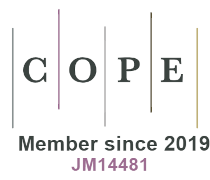The political party system in Slovakia in the era of Mečiarism. The experiences of the young democracies of central European countries
DOI:
https://doi.org/10.18778/1427-9657.09.03Słowa kluczowe:
Slovakia, Vladimir Mečiar, party system, democracy, political partyAbstrakt
This article aims to reconstruct the functioning of political parties that was present during the establishment of the foundations of the democratic system and political practice, from the “Velvet Revolution” to the creation of a competitive party system with a dominant political party – Movement for Democratic Slovakia (HZDS) set up by Vladimir Mečiar; who served as prime minister in the years 1993–1998 (including a hiatus in 1994) greatly affecting the state internal and international policy, and held the post of the sole chairman of the party until its dissolution. V. Mečiar’s rule was marked by the interweaving of the elements of the wave of democratization with the reverse wave of de-democratization. The pro-democratic and undemocratic tendencies displayed by Mečiar were determined – apart from objective factors – by the personality traits of the prime minister: his commanding and charismatic leadership style, authoritarianism, making public decisions in a ruthless manner devoid of impartiality, or violations of democratic norms and values. Apart from its scientific purpose, this article may also fulfil a practical function allowing the possibility of using the research findings in social practice/politics.
Bibliografia
Ágh, A. 1998. The Politics of Central Europe. London, Thousand Oaks, New Delhi: Sage Publications.
Google Scholar
DOI: https://doi.org/10.4135/9781446279250
Antoszewski, A., Fiala, P., Herbut, R., Sroka, J. (eds.). 2003. Partie i systemy partyjne Europy Środkowej. Wrocław: Wydawnictwo Uniwersytetu Wrocławskiego, pp. 145–160.
Google Scholar
Balík, S., Hloušek, V., Holzer, J., Šedo, J. 2007. Politický systém českých zemí 1848–1989. Brno: Mezinárodní politologický ústaw.
Google Scholar
Barański, M. 2004. Zmiany systemu partyjnego w Słowacji. In: R. Fiedler (ed.). Integracja europejska na początku XXI wieku. Wybrane problemy. Poznań: Wydawnictwo Uniwersytetu Adama Mickiewicza.
Google Scholar
Barański, M., Czyż, A., Kubas, S., Rajczyk, R. 2016. Wybory, prawo wyborcze, systemy wyborcze w państwach Grupy Wyszehradzkiej. Katowice: Wydawnictwo Uniwersytetu Śląskiego.
Google Scholar
Barański, M. (ed.). 1995. Dynamika systemów politycznych wybranych państw Europy Środkowej i Wschodniej. Katowice: Wydawnictwo Uniwersytetu Śląskiego.
Google Scholar
Barański, M. (ed.). part. E. Pioskowik. 2005. Systemy polityczne państw Europy Środkowej i Wschodniej. Ustrój, organy władzy, partie polityczne. Katowice: Wydawnictwo Uniwersytetu Śląskiego.
Google Scholar
Beyme von, K. 1984. Systemwechsel in Osteuropa. Frankfurt am Main: Suhrkamp.
Google Scholar
Chmielewski, G. 2014. System konstytucyjny Słowacji. Warszawa: Wydawnictwo Sejmowe.
Google Scholar
Cibulka, L. et al. 2014. Ústavné právo. Ústavný systém Slovenskej republiky. Bratislava: Vyd. Univerzita Komenského.
Google Scholar
Cichosz, M. 2010. Gabinety na Słowacji po 1990 roku. In: E. Pałka (ed.). Współczesna Słowacja. Sytuacja wewnętrzna i pozycja międzynarodowa. Wrocław: Oficyna Wydawnicza Arboretum, pp. 133–150.
Google Scholar
Czyż, A., Kubas, S. 2012. Czechy i Słowacja. Politologiczne studium wspólnej i oddzielnej państwowości. Katowice: Wydawnictwo Uniwersytetu Śląskiego.
Google Scholar
Czyż, A., Kubas, S. 2014. Państwa Grupy Wyszehradzkiej: pomiędzy przeszłością a teraźniejszością. Wybrane aspekty polityki wewnętrznej i zagranicznej. Katowice: Wydawnictwo Uniwersytetu Śląskiego.
Google Scholar
Huntington, S.P. 1995. Trzecia fala demokratyzacji. Warszawa: Państwowe Wydawnictwo Naukowe.
Google Scholar
Kitschelt, H. 1995. Formation of Party Cleavages in Post-Communist Democracies. Theoretical Propositions. Party Politics 1(4), pp. 447–472.
Google Scholar
DOI: https://doi.org/10.1177/1354068895001004002
Kitschelt, H. et al. 1999. Post-Communist Party Systems Competition, Representation, and Inter-Party Cooperation. Cambridge: Cambridge University Press.
Google Scholar
DOI: https://doi.org/10.1017/CBO9781139175173
Kopeček, L. 2007. Politické strany na Slovensku 1989 až 2006. Brno: Centrum pro studium demokracie a kultury.
Google Scholar
Kopeček, L., Spáč, P. 2010. System partyjny Słowacji. In: E. Pałka (ed.). Współczesna Słowacja. Sytuacja wewnętrzna i pozycja międzynarodowa. Wrocław: Oficyna Wydawnicza Arboretum, pp. 111–133.
Google Scholar
Muller, J. 2017. Co to jest populizm? Trans. M. Sutowski. Warszawa: Wydawnictwo Krytyki Politycznej.
Google Scholar
Posluch, M., Cibulka, Ľ. 2006. Štátne právo Slovenskej republiky. Šamorín: Heuréka.
Google Scholar
Rolková, N. 2004. Desat̕ročie Slovenskej Republiky: venovanéjubileu štátnej samostatnosti. Martin: Matica slovenská.
Google Scholar
Rychlík, J. 2002. Rozpad Československa: česko-slovenské vztahy 1989–1992. Bratislava: Academic Electronic Press.
Google Scholar
Snyder, T. 2017. O tyranii. Dwadzieścia lekcji z dwudziestego wieku. Trans. B. Pietrzyk. Kraków. Społeczny Instytut Wydawniczy Znak.
Google Scholar
Szomolanyi, S., Meseznikov, G. (eds.). 1994. Slovensko-vol̕by 1994: príčiny, dôsledky, perspektívy: zborník z vedeckej konferencie, ktorá sa konala 9. novembra 1994 v Bratislave. Bratislava: Slovenské združenie pre politické vedy: Nadácia Friedricha Eberta.
Google Scholar
Wojnicki, J. (ed.). 2015. Kształtowanie ładu demokratycznego w państwach Europy Środkowej i na Bałkanach. Szanse i zagrożenia. Warszawa: Aspra.
Google Scholar
Wojtas, K. 2011. Partie populistyczne w Czechach i na Słowacji. Warszawa: Wydawnictwo Naukowe SCHOLAR.
Google Scholar
HZDS website, http://www.hzds.sk
Google Scholar
KDH website, http://www.kdh.sk/
Google Scholar
KSS website, http://kss.sk/
Google Scholar
MOST-HID website, http://www.most-hid.sk
Google Scholar
NOVA website, https://www.nova.sk
Google Scholar
OL’aNO website, http://www.obycajniludia.sk/
Google Scholar
SAS website, http://www.sas.sk
Google Scholar
SDKU-DS website, http://www.sdku-ds.sk
Google Scholar
SIET website, http://siet.sk
Google Scholar
SME-RODINA website, http://hnutie-smerodina.sk
Google Scholar
SMER website, http://www.strana-smer.sk
Google Scholar
SMK website, https://www.mkp.sk
Google Scholar
SNS website, http://www.sns.sk/
Google Scholar
STRANA ZELENYCH website, http://stranazelenychslovenska.sk
Google Scholar
Pobrania
Opublikowane
Jak cytować
Numer
Dział
Licencja

Utwór dostępny jest na licencji Creative Commons Uznanie autorstwa – Użycie niekomercyjne – Bez utworów zależnych 4.0 Międzynarodowe.










